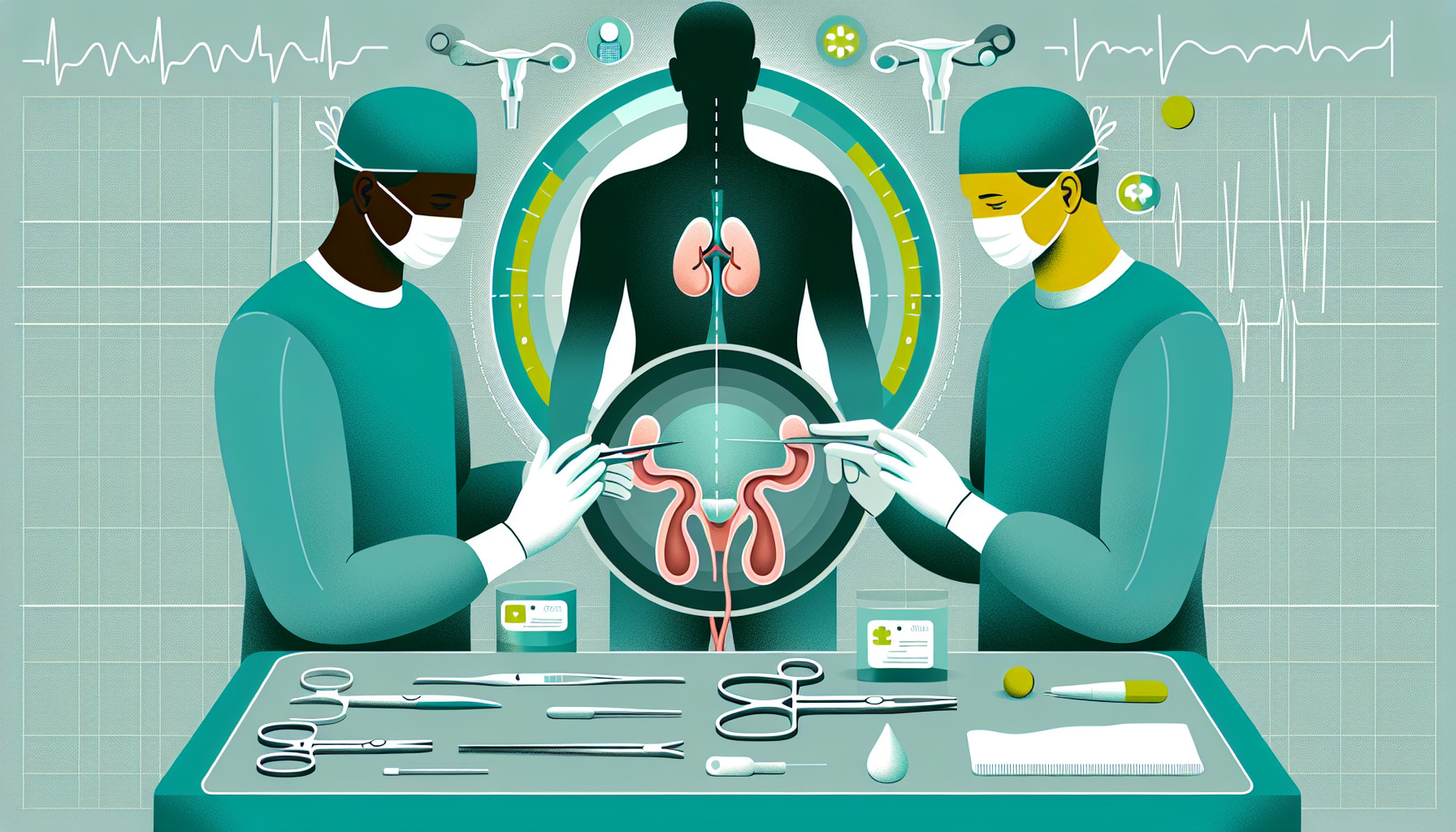Our Summary
This research paper delves into the complications that can occur after a radical cystectomy, which is a complex surgery that involves removing the bladder. The researchers reviewed 3766 studies and included 44 of them in their work. They found that complications are quite common after this surgery, with the most frequent issues being related to the digestive system (20%), infections (17%), and ileus, a disruption of the normal movement of the gut (14%).
Furthermore, they found that patient’s pre-existing health conditions can influence the risk of complications and should be taken into account when preparing for the surgery. Interestingly, the studies that were better designed and had less chance for bias actually reported higher complication rates. This suggests that there might be underreporting of complications in some studies, so there’s a need to improve how these are reported in order to provide a more accurate picture of the risks.
In simple terms, removing the bladder is a complicated surgery and often leads to other health problems afterwards. The chances of these problems happening can be influenced by the patient’s health before the surgery. The researchers suggest that we need to improve how we track and report these problems to understand the risks better.
FAQs
- What are the most common complications after a radical cystectomy?
- How do pre-existing health conditions influence the risk of complications in a radical cystectomy?
- Why do better-designed studies report higher complication rates in radical cystectomy?
Doctor’s Tip
A doctor might advise a patient undergoing a cystectomy to closely follow post-operative care instructions, such as taking prescribed medications, avoiding heavy lifting or strenuous activities, and attending follow-up appointments to monitor for any potential complications. It’s important for patients to communicate any concerning symptoms or changes in their health to their healthcare provider promptly.
Suitable For
Patients who are typically recommended for a cystectomy include those with invasive bladder cancer that has not responded to other treatments, such as chemotherapy or radiation therapy. This surgery may also be recommended for patients with non-invasive bladder cancer that is high-grade and has a high risk of recurrence, or for those with severe interstitial cystitis or other bladder conditions that have not responded to other treatments.
Additionally, patients with neurogenic bladder dysfunction, such as spinal cord injury or multiple sclerosis, may also be recommended for a cystectomy if other treatments have been unsuccessful in managing their symptoms. Patients with recurrent urinary tract infections or bladder stones that cannot be treated with other methods may also be candidates for this surgery.
Overall, cystectomy is a major surgery with significant risks and complications, so it is typically recommended for patients who have exhausted other treatment options and have a high likelihood of benefiting from the procedure. Patients should discuss the risks and benefits of cystectomy with their healthcare provider to determine if it is the best treatment option for their specific condition.
Timeline
Before the cystectomy:
- Patient is diagnosed with a condition that requires the removal of the bladder, such as bladder cancer.
- Patient undergoes pre-operative tests and evaluations to assess their overall health and suitability for surgery.
- Patient may undergo chemotherapy or radiation therapy before the surgery to shrink the tumor.
- Patient meets with their healthcare team to discuss the surgery, potential risks, and post-operative care.
- Patient undergoes the cystectomy surgery to remove the bladder.
After the cystectomy:
- Patient wakes up in the recovery room and is monitored closely for any immediate complications.
- Patient may experience pain and discomfort from the surgery, which is managed with pain medications.
- Patient may have a catheter to drain urine from the body while the surgical site heals.
- Patient begins the recovery process, which includes physical therapy and rehabilitation to regain strength and mobility.
- Patient may experience complications such as infections, digestive issues, or ileus in the days and weeks following the surgery.
- Patient continues to have regular follow-up appointments with their healthcare team to monitor their recovery and address any complications that arise.
- Patient may need additional treatments or interventions to manage any long-term effects of the surgery, such as urinary diversion techniques.
Overall, the timeline before and after a cystectomy involves extensive preparation, the surgical procedure itself, and ongoing care and monitoring to manage potential complications and support the patient’s recovery.
What to Ask Your Doctor
Some questions a patient should ask their doctor about cystectomy include:
- What are the potential complications of a cystectomy surgery?
- How common are these complications and what is the likelihood of experiencing them?
- How can I reduce my risk of complications before and after the surgery?
- Are there any specific pre-existing health conditions that could increase my risk of complications?
- What is the recovery process like after a cystectomy and how long does it typically take?
- What kind of follow-up care will I need after the surgery to monitor for any potential complications?
- Are there any lifestyle changes or precautions I should take to prevent complications post-surgery?
- What are the signs and symptoms of complications that I should watch out for and when should I contact my healthcare provider?
- Are there any support resources or organizations that can provide additional information and assistance for patients undergoing a cystectomy surgery?
Reference
Authors: Katsimperis S, Tzelves L, Tandogdu Z, Ta A, Geraghty R, Bellos T, Manolitsis I, Pyrgidis N, Schulz GB, Sridhar A, Shaw G, Kelly J, Skolarikos A. Journal: Eur Urol Focus. 2023 Nov;9(6):920-929. doi: 10.1016/j.euf.2023.05.002. Epub 2023 May 26. PMID: 37246124
